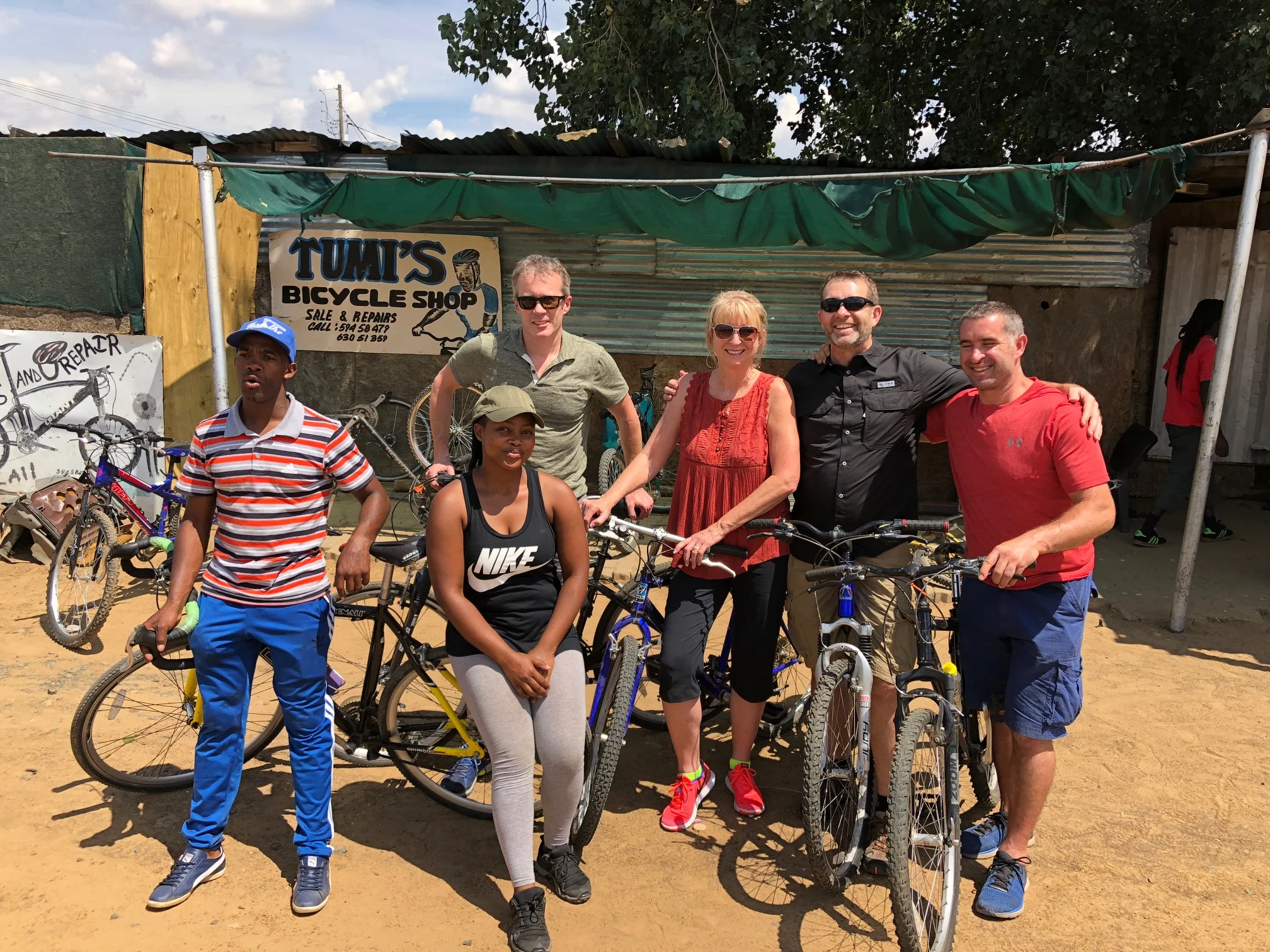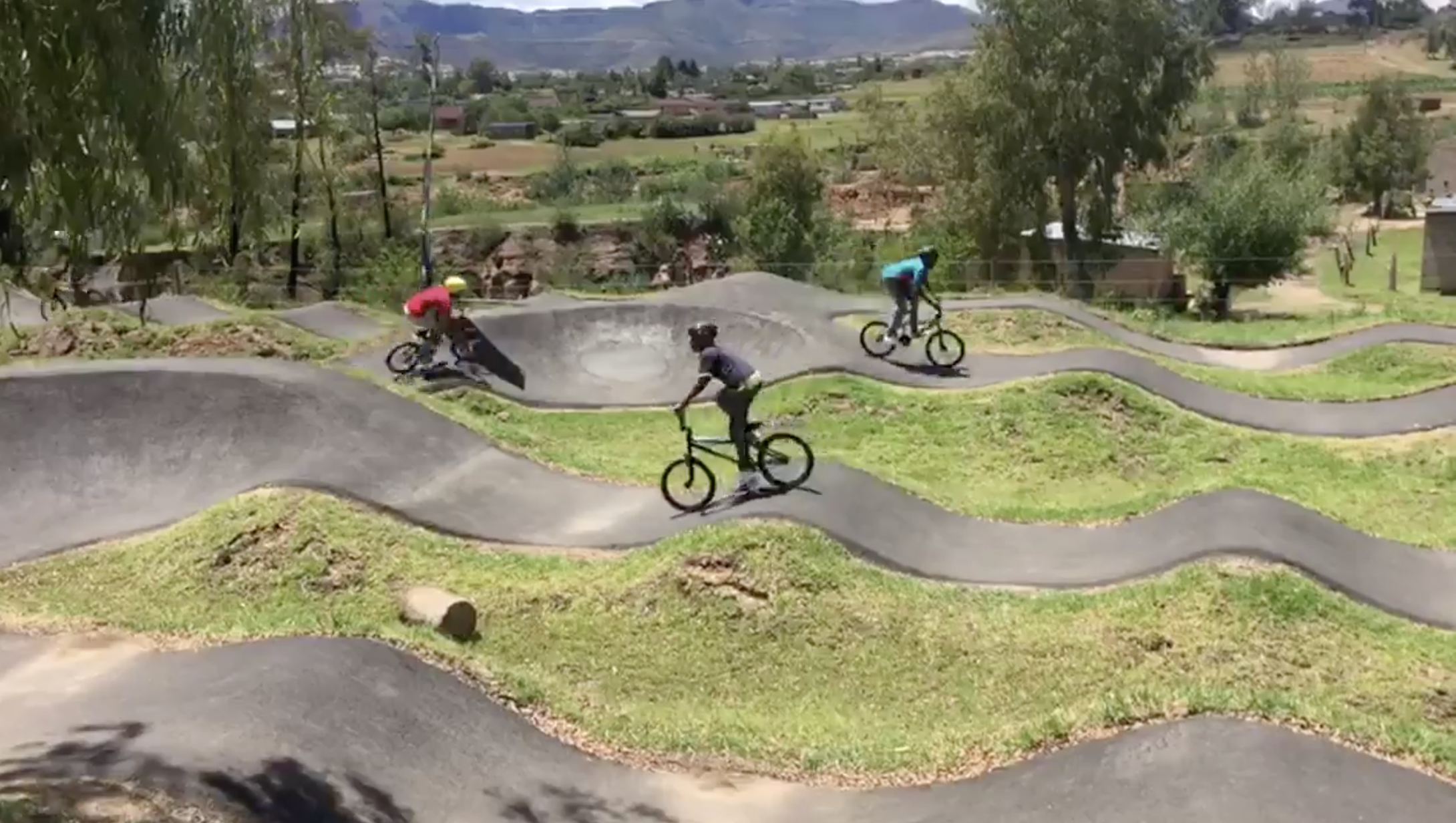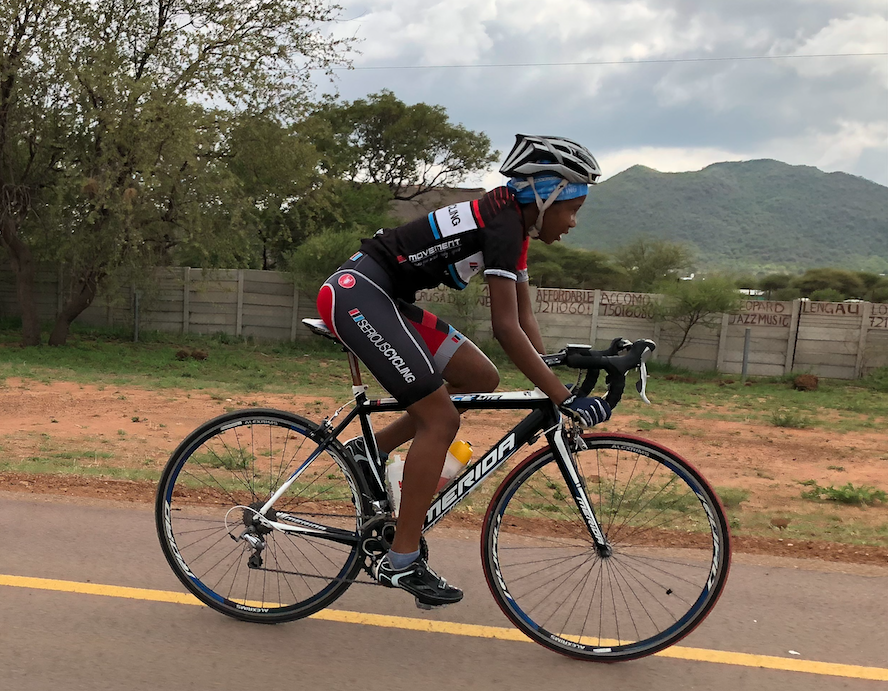Mike's Bikes Africa Project - An Interview with Ken Martin, CEO
The bicycle is the most ecologically and fiscally sustainable vehicle ever invented, and it can provide freedom, mobility and positive change in the lives of people who need it most. Because of this belief, we created The Mike’s Bikes Foundation which undertakes projects that are helping to put bicycles directly into the hands of people in developing Africa.
Founded in 2008, these projects have grown beyond what was originally imagined to create the most sustainable model currently possible. Ken Martin, CEO, tells the story of these projects and how they have evolved throughout the years.

DELIVERING BIKES
Ken, Mike's Bikes CEO, with Mike & Debbe, Bicycle Warehouse Owners, visiting Tumi's Bicycle Shop, one of Mike's Bikes Sister Shops, in Lesotho during their recent trip delivering bikes.
Describe what the Africa Projects are all about.
We wanted a way for us to do a bike donation program that was cost effective and sustainable. Many of the bike donation programs give their bikes away for free, but for us it was key to create a sustainable program that lived past our donations and truly taught the value of the bike.
We went through a few iterations of the projects to land where we are now, with four main distribution centers in Kenya, Botswana, Zimbabwe, and Lesotho. Instead of handing out the bikes for free, our distribution partners in Africa sell them for the cost of shipping and import duty to local shops and business people who then sell the bikes to their communities at affordable prices, using the capital to keep their shops running, hire local workers, and promote cycling. This helps with the long-term value and impact of the bicycles.

STAYING SUSTAINABLE
Teaching mechanics all around South Africa valuable skills in bicycle mechanics helps keep the projects going beyond our initial donations.
Tell us more about the local shops you sell to and how they help benefit the community.
When we began the program, we were helping to set up “Sister Shops” that would keep the bikes running after they were delivered to Africa. We quickly noticed that this was key in keeping the program sustainable. We were setting them up to function beyond our initial donations. They were using the tools we gave them to operate their own small business which then helped them provide for their family and give back to the community.
We decided to broaden our model and distribute to more shops and business people who could spread the value of the bike across Africa. We support them in developing their own individual business models in order to best service the area in which they live.
For example, in Maseru, Lesotho they built a pump track and rent their bikes out to kids who want to ride. If a kid can’t afford to rent a bike, they can earn free rentals by working in the community garden, which then provides fresh produce for people in the area.

GETTING PUMPED
Kids keep busy at the pump track in Roma, set up by the local Mike's Bikes Sister Shop.
Another example is a woman named Aggie, who doesn’t run a shop but acts as an independent businesswoman who specializes in soft goods. Her bike is her only mode of transportation, and she uses it every day, rain or shine, to navigate her huge network of suppliers and customers. We are the main source where she is able to get her supplies.
Can you highlight a personal story from one of your visits?
There are so many. The best are stories of us witnessing the passion the African people have for bikes.
The Lesotho Sky is a hardcore mountain bike stage race in Lesotho that top riders from over 21 countries come to compete in. Years ago, a 15-year-old named Mekke showed up with an old, beat-to-hell hybrid bike with bald tires, and wanted to ride. Although he couldn’t pay the entrance fee, ride organizers Christian and Darol let him ride because of the sheer devotion he showed for the sport. He didn’t win, but he didn’t come in last either. He became friends with Christian and Darol, our distribution partner outside Maseru, and they were so impressed by his enthusiasm, he’s now working at the new bike shop there. Even without supplies, Mekke wanted to ride. Now with our program, he gets to work every day doing what he loves, spreading his passion for bikes.

UPCYCLING KITS
Boitshepo Lesele racing in Botswana in apparel donated through Adam Austin's donation program in Los Angeles.
How can people get involved?
Donate your old bike and gear!
In Northern California, you can bring used bikes to any of our twelve Mike’s Bikes locations.
We also have collection partners in Southern California. You can bring your used bikes to any Bicycle Warehouse or bring your used apparel and gear to one of Kit Up Africa’s drop off points, run by Adam Austin.
Full sustainability is the goal, but until we get there, the projects cost money to operate. You can support our efforts financially by donating online.

